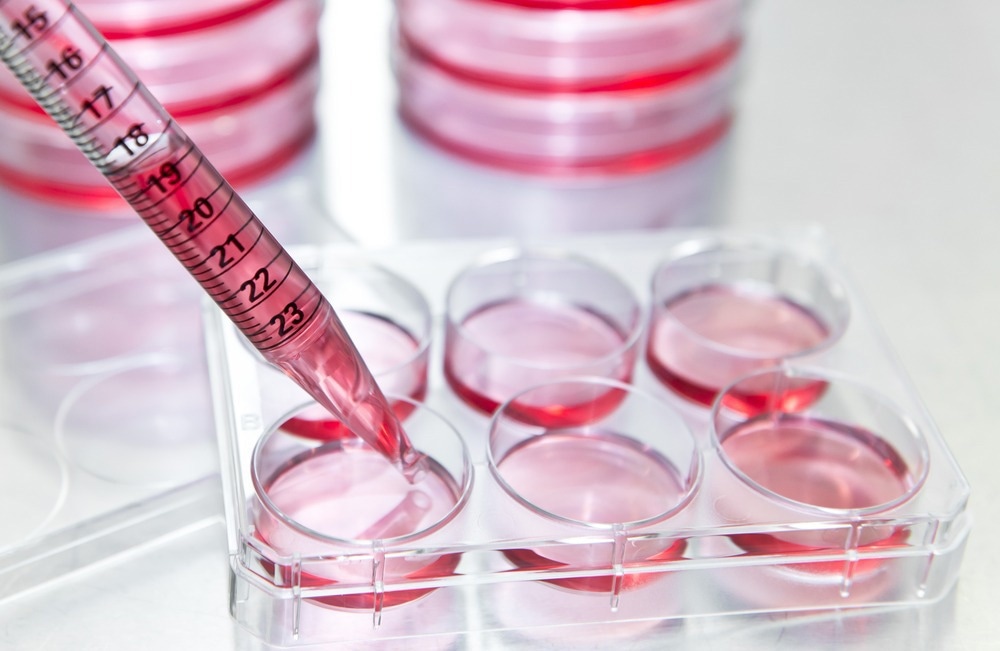Hematopoietic stem cells (HSCs) are immature blood cells found in the bone marrow that can be stimulated to develop into any blood cell. HSC transplants can be used to treat conditions in which the bone marrow is damaged and no longer capable of producing healthy blood cells, but their widespread and safe usage is hampered by laboratory hurdles to cell growth and expansion (i.e., ex vivo).

Image Credit: unoL/Shutterstock.com
A team guided by scientists from the University of Tsukuba has now developed a unique culture technique that allows for long-term ex vivo proliferation of HSCs.
Human HSCs are frequently and readily collected from umbilical cord blood; however, the amount of HSCs obtained is insufficient for optimal transplantation. Though ex vivo HSC growth is required, it has been challenging to obtain. Previous studies employed cell signaling molecules called cytokines and a protein called albumin to boost HSC expansion, but they only had short-term success.
Other teams have shown promising results using novel approaches for HSC ex vivo expansion, including the addition of small molecules, certain hydrogels, various growth factors, or small molecule inhibitors to the cell culture media.”
Satoshi Yamazaki, Study Senior Author and Professor, University of Tsukuba
Though cytokines were formerly thought to be required for ex vivo HSC growth, the study team anticipated that other innovative techniques might suffice. They discovered that albumin may be substituted with a synthetic polymer in mouse HSCs.
This not only solved the albumin-related issue of variability between batches utilized in different studies, but it also avoided the detrimental effects of impurities, which are widespread.
When the researchers used this technique on human HSCs, they discovered that they proliferated less robustly than mouse HSCs. Following molecular analysis, they discovered the decreased activity of vital signaling molecules known as PI3K and AKT. To address this, they discovered that stimulating PI3K and AKT using chemicals might dramatically increase human HSC growth.
We also found that adding a receptor agonist chemical known as butyzamide could stimulate cell proliferation, providing a good alternative to cytokines that were commonly used in the past.”
Satoshi Yamazaki, Study Senior Author and Professor, University of Tsukuba
Adding UM171 and a particular polymer improved the results by promoting long-term HSC expansion. The scientists confirmed the successful impacts of this approach on gene expression in individual cells using RNA sequencing. Furthermore, transferring the HSCs into mice aided in the engraftment and development of the cells grown in their new culture system.
Considering the significance of the ex vivo expansion of human HSCs, the newly constructed system employing an ideal chemically-defined cell culture medium is a viable alternative to systems employing conventional cytokine-containing media. This research could aid in the advancement of several HSC-related therapeutics in clinical development, thereby saving lives.
Source:
Journal reference:
A team guided by scientists from the University of Tsukuba has now developed a unique culture technique that allows for long-term ex vivo proliferation of HSCs.